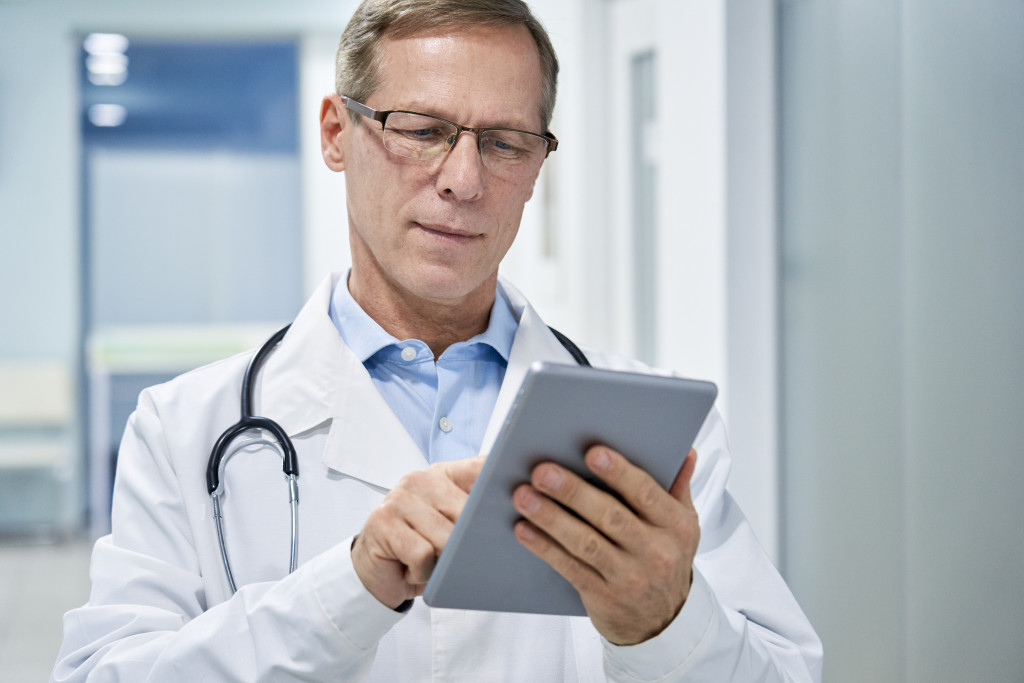- Technology is essential for managing patients’ health and maintaining good health.
- Clinics can use various technology-based products & solutions to monitor & manage their patients.
- Patient health monitoring apps, telemedicine platforms, wearable health trackers, and electronic health records are all helpful tools for clinics.
- Security and cost are possible challenges when using technology to manage patient health.
- Keeping up with technological advancements is essential to ensure effective patient care.
Technology has become essential to our daily lives, especially in the health sector. Many clinics now know the benefits of using technology to monitor and manage their patients’ health. Since the pandemic, managing patients in various locations has become more challenging, and technology has been a reliable way to keep up with patients without putting anyone’s health at risk. Here’s in-depth information on how clinics can use technology to monitor and manage their patients’ health.
The Importance of Patient Monitoring
Maintaining good health enables people to achieve better quality and longevity of life. One of the most critical aspects of good health is patient monitoring. It is crucial to monitor various key parameters such as blood pressure, blood sugar, heart rate, and oxygen saturation levels.
Regular patient monitoring is essential to navigate any existing issues with an individual’s health and keep it in check before it becomes severe. It can also help detect the early onset of diseases or illnesses, leading to quicker interventions to cure or manage such issues.
How to Use Technology to Monitor and Manage Patients
Clinics now have access to many technology-based products and solutions that help monitor and manage patients. These include:
Patient Health Monitoring Apps

Patient health monitoring apps enable patients to manage their health quickly. The apps allow patients to monitor their diet, exercise routines, medication schedules, and overall health. The apps help patients maintain healthy lifestyles, vital for managing chronic conditions such as diabetes, hypertension, and heart disease.
There are many patient health monitoring apps nowadays, but the ones from doctodoor.com are beneficial for tracking and managing patients. The app has a user-friendly interface, provides personalized notifications, connects doctors and specialists through chats, and offers many other features to help clinics better manage their patients’ health.
Use Telemedicine Platforms
Telemedicine platforms are becoming increasingly popular in the health sector. They provide an effective way of monitoring and managing patients remotely, essential during these uncertain times.
Telemedicine platforms enable clinics to communicate with patients through video calls and chat. Through this, they can provide consultations, answer patients’ questions, and give them on-demand medical advice. By using telemedicine, clinics can monitor their patient’s health remotely and ensure that patients get timely medical attention when need be.
Wearable Health Trackers
Wearable health trackers are another technology that has revolutionized the health sector. These devices monitor patients’ health and help them maintain a healthy lifestyle. Wearable health trackers come in various forms, and patients can wear them as watches, bands, or clips.
The devices track patients’ fitness activities, heart rate, blood pressure, calories burned, and sleep patterns. The devices send data to mobile apps, which make it easy for clinics to access patients’ health data during consultations.
Electronic Health Records (EHR)

Electronic health records are essential for clinics that want to leverage technology to manage patient health. EHR is a digital tool that stores patients’ health information. It includes patients’ medical records, diagnoses, treatment plans, prescriptions, lab test results, and other relevant medical information.
EHRs make it easy for clinicians to access patients’ health data, making it easier to manage patients’ health. EHRs also enhance patients’ experience since patients’ health records are accessible across clinics. Clinics do not need to repeat medical tests since the documents are already available in their EHRs.
What are the Possible Challenges
Unfortunately, despite the advantages of using technology to monitor and manage patients, there are some challenges that clinics need to be aware of.
Security is one of the most critical issues here, as data stored in EHRs needs to remain secure. Clinics should ensure that they use a secure system for storing patient information. Additionally, clinicians must take appropriate measures to protect their data from cyber-attacks.
Another challenge is the cost of technology. Although it can provide significant benefits, technology comes with a price tag, and clinics may find it challenging to keep up with the costs of updating or upgrading any software they use for patient monitoring and management.
Final Thoughts
In conclusion, technology has revolutionized healthcare, and clinics can use it to monitor and manage their patients’ health. Clinics can use telemedicine platforms, wearable health trackers, EHRs, and patient health monitoring apps to manage patients remotely and ensure they receive timely medical attention. As technology continues to evolve, clinics should keep up to date with technological advancements that can improve patient care.
